-
 Bitcoin
Bitcoin $81,533.6725
5.67% -
 Ethereum
Ethereum $1,587.2559
7.63% -
 Tether USDt
Tether USDt $0.9999
0.04% -
 XRP
XRP $1.9923
8.74% -
 BNB
BNB $577.9735
4.04% -
 USDC
USDC $1.0000
-0.03% -
 Solana
Solana $114.6754
6.94% -
 Dogecoin
Dogecoin $0.1560
6.76% -
 TRON
TRON $0.2389
4.11% -
 Cardano
Cardano $0.6198
7.80% -
 UNUS SED LEO
UNUS SED LEO $9.3868
2.77% -
 Chainlink
Chainlink $12.3289
8.26% -
 Avalanche
Avalanche $18.0099
8.03% -
 Toncoin
Toncoin $3.0232
-0.53% -
 Stellar
Stellar $0.2336
5.14% -
 Hedera
Hedera $0.1700
10.54% -
 Shiba Inu
Shiba Inu $0.0...01194
8.91% -
 Sui
Sui $2.1413
8.31% -
 MANTRA
MANTRA $6.7390
7.65% -
 Bitcoin Cash
Bitcoin Cash $297.2313
8.70% -
 Litecoin
Litecoin $74.1125
5.07% -
 Polkadot
Polkadot $3.5508
2.17% -
 Dai
Dai $1.0000
-0.01% -
 Bitget Token
Bitget Token $4.2491
3.82% -
 Ethena USDe
Ethena USDe $0.9988
0.00% -
 Hyperliquid
Hyperliquid $13.8480
9.34% -
 Pi
Pi $0.5924
4.82% -
 Monero
Monero $203.3177
4.27% -
 Uniswap
Uniswap $5.2004
6.70% -
 OKB
OKB $53.5321
3.78%
What are the applications of Chainlink in the DeFi field?
Chainlink's decentralized oracles connect smart contracts to real-world data, enabling secure DeFi operations like price feeds, synthetic assets, and automated financial agreements.
Apr 03, 2025 at 07:35 pm
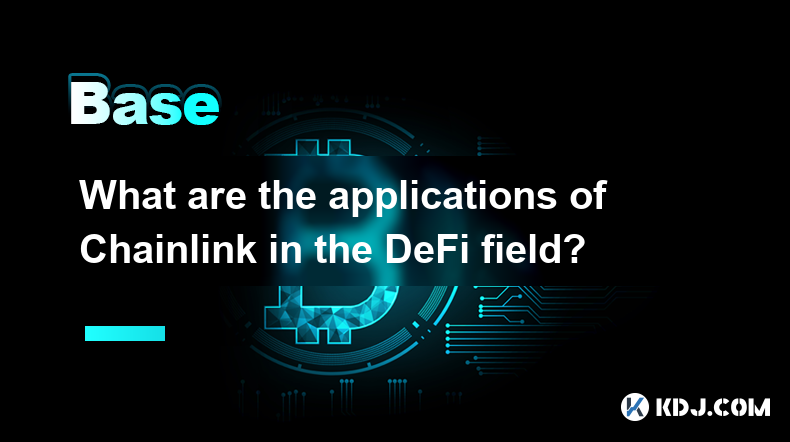
Chainlink is a decentralized oracle network that plays a crucial role in the DeFi (Decentralized Finance) ecosystem. Its primary function is to connect smart contracts with real-world data, enabling them to interact with external systems and data sources securely and reliably. This connectivity is essential for the operation of many DeFi applications, as it allows them to access price feeds, verify transactions, and execute complex financial agreements based on real-world conditions.
In the DeFi field, Chainlink's applications are diverse and impactful. One of the most significant uses is in providing price feeds for decentralized exchanges (DEXs) and lending platforms. These platforms rely on accurate and timely price data to ensure fair trading and lending conditions. Chainlink's decentralized oracle network aggregates data from multiple sources, reducing the risk of manipulation and ensuring that the prices used are as accurate as possible.
Another important application of Chainlink in DeFi is in the creation and management of synthetic assets. Synthetic assets are tokens that represent the value of real-world assets, such as commodities, stocks, or currencies. Chainlink's oracles provide the necessary data to maintain the peg of these synthetic assets to their underlying assets, ensuring that they accurately reflect real-world values. This functionality is crucial for the operation of platforms like Synthetix, which allows users to trade synthetic assets on the blockchain.
Chainlink's Role in Decentralized Lending and Borrowing
In decentralized lending and borrowing platforms, Chainlink's oracles are used to determine the collateralization ratios and liquidation thresholds. These platforms, such as Aave and Compound, allow users to lend and borrow cryptocurrencies using smart contracts. The collateralization ratio determines how much collateral a borrower must provide relative to the loan amount, and the liquidation threshold is the point at which the collateral is sold off to repay the loan. Chainlink's oracles provide the necessary price data to calculate these ratios and thresholds accurately, ensuring the stability and security of these platforms.
Chainlink also plays a vital role in the automation of financial agreements through smart contracts. For instance, in the case of decentralized insurance platforms, Chainlink's oracles can be used to trigger payouts based on real-world events, such as natural disasters or flight delays. This automation reduces the need for intermediaries and increases the efficiency and transparency of insurance claims processing.
Chainlink and Decentralized Derivatives
Decentralized derivatives markets, such as those offered by platforms like dYdX and Synthetix, also benefit from Chainlink's oracle services. Derivatives are financial instruments whose value is derived from an underlying asset. In a decentralized setting, accurate and timely data on the underlying assets is crucial for the proper functioning of these markets. Chainlink's oracles provide this data, enabling the creation and trading of decentralized derivatives with confidence.
Furthermore, Chainlink's oracles are used in the field of decentralized prediction markets. Platforms like Augur and Gnosis allow users to bet on the outcome of future events. Chainlink's oracles provide the data necessary to determine the outcome of these events, ensuring that the results are fair and verifiable. This application of Chainlink's technology is particularly important for the integrity of prediction markets, as it ensures that the outcomes are based on real-world data and not subject to manipulation.
Chainlink's Contribution to DeFi Yield Farming
Yield farming, a popular practice in the DeFi space, also relies on Chainlink's oracles. Yield farming involves users providing liquidity to DeFi platforms in exchange for rewards, often in the form of tokens. The rewards are typically distributed based on the amount of liquidity provided and the duration of the provision. Chainlink's oracles help to calculate these rewards accurately, ensuring that users receive fair compensation for their contributions. This functionality is crucial for the sustainability and attractiveness of yield farming platforms.
In addition to these applications, Chainlink's oracles are used in the field of decentralized stablecoins. Stablecoins are cryptocurrencies designed to maintain a stable value, often pegged to a fiat currency like the US dollar. Chainlink's oracles provide the necessary data to maintain the peg of these stablecoins, ensuring that they remain stable and reliable. This functionality is crucial for the operation of platforms like MakerDAO, which issues the DAI stablecoin.
Chainlink's Impact on DeFi Governance
Chainlink's technology also plays a role in DeFi governance. Many DeFi platforms are governed by decentralized autonomous organizations (DAOs), which make decisions through voting by token holders. Chainlink's oracles can be used to provide the necessary data for these governance processes, ensuring that the decisions are based on accurate and verifiable information. This application of Chainlink's technology is particularly important for the integrity and effectiveness of DeFi governance.
Moreover, Chainlink's oracles are used in the field of decentralized identity verification. In the DeFi space, identity verification is crucial for ensuring compliance with regulatory requirements and preventing fraud. Chainlink's oracles can be used to verify the identity of users, ensuring that the necessary checks are performed accurately and securely. This functionality is crucial for the operation of platforms that require identity verification, such as those involved in decentralized lending and borrowing.
Chainlink's Role in DeFi Interoperability
Interoperability between different DeFi platforms is another area where Chainlink's oracles play a crucial role. Many DeFi platforms operate on different blockchains, and Chainlink's technology enables them to communicate and share data securely. This interoperability is essential for the seamless operation of the DeFi ecosystem, as it allows users to move assets and data between different platforms with ease. Chainlink's oracles provide the necessary data to facilitate this interoperability, ensuring that the DeFi ecosystem remains connected and efficient.
In the field of decentralized asset management, Chainlink's oracles are used to provide the necessary data for the management of investment portfolios. Decentralized asset management platforms, such as those offered by Yearn.finance, allow users to manage their investments on the blockchain. Chainlink's oracles provide the necessary data to calculate the performance of these investments, ensuring that users receive accurate and timely information about their portfolios. This functionality is crucial for the operation of decentralized asset management platforms, as it enables users to make informed investment decisions.
Chainlink's Contribution to DeFi Security
Chainlink's oracles also play a crucial role in enhancing the security of DeFi platforms. By providing accurate and verifiable data, Chainlink's oracles help to prevent manipulation and fraud. For instance, in the case of decentralized exchanges, Chainlink's oracles can be used to verify the prices of assets, ensuring that trades are executed at fair prices. This functionality is crucial for the integrity and security of decentralized exchanges, as it helps to prevent price manipulation and ensures that users receive fair value for their trades.
In addition to these applications, Chainlink's oracles are used in the field of decentralized risk management. Many DeFi platforms involve complex financial agreements that require the management of risk. Chainlink's oracles provide the necessary data to assess and manage these risks accurately, ensuring that the platforms remain stable and secure. This functionality is crucial for the operation of platforms that involve risk management, such as those involved in decentralized lending and borrowing.
Chainlink's Role in DeFi Data Aggregation
Data aggregation is another area where Chainlink's oracles play a crucial role. Many DeFi platforms rely on data from multiple sources to operate effectively. Chainlink's oracles aggregate this data, ensuring that it is accurate and reliable. This functionality is crucial for the operation of platforms that require data aggregation, such as those involved in decentralized lending and borrowing. By providing accurate and verifiable data, Chainlink's oracles help to ensure the stability and security of these platforms.
In the field of decentralized gaming, Chainlink's oracles are used to provide the necessary data for the operation of decentralized games. These games often involve complex financial agreements that require the use of real-world data. Chainlink's oracles provide this data, ensuring that the games are fair and verifiable. This functionality is crucial for the operation of decentralized gaming platforms, as it enables users to participate in games with confidence.
Chainlink's Impact on DeFi Tokenization
Tokenization is another area where Chainlink's oracles play a crucial role. Many DeFi platforms involve the tokenization of real-world assets, such as real estate or art. Chainlink's oracles provide the necessary data to maintain the peg of these tokens to their underlying assets, ensuring that they accurately reflect real-world values. This functionality is crucial for the operation of platforms that involve tokenization, as it enables users to trade these tokens on the blockchain with confidence.
In the field of decentralized supply chain management, Chainlink's oracles are used to provide the necessary data for the management of supply chains on the blockchain. These supply chains often involve complex financial agreements that require the use of real-world data. Chainlink's oracles provide this data, ensuring that the supply chains are efficient and verifiable. This functionality is crucial for the operation of platforms that involve supply chain management, as it enables users to manage their supply chains with confidence.
Chainlink's Role in DeFi Compliance
Compliance with regulatory requirements is another area where Chainlink's oracles play a crucial role. Many DeFi platforms are subject to regulatory requirements, such as anti-money laundering (AML) and know-your-customer (KYC) regulations. Chainlink's oracles provide the necessary data to ensure compliance with these regulations, ensuring that the platforms remain legal and secure. This functionality is crucial for the operation of platforms that are subject to regulatory requirements, as it enables users to participate in these platforms with confidence.
In the field of decentralized auditing, Chainlink's oracles are used to provide the necessary data for the auditing of DeFi platforms. These audits often involve complex financial agreements that require the use of real-world data. Chainlink's oracles provide this data, ensuring that the audits are accurate and verifiable. This functionality is crucial for the operation of platforms that require auditing, as it enables users to trust the integrity of these platforms.
Chainlink's Contribution to DeFi Innovation
Innovation is another area where Chainlink's oracles play a crucial role. Many DeFi platforms are constantly innovating, developing new financial products and services. Chainlink's oracles provide the necessary data to support these innovations, ensuring that they are accurate and reliable. This functionality is crucial for the operation of platforms that are focused on innovation, as it enables users to participate in these platforms with confidence.
In the field of decentralized crowdfunding, Chainlink's oracles are used to provide the necessary data for the operation of decentralized crowdfunding platforms. These platforms often involve complex financial agreements that require the use of real-world data. Chainlink's oracles provide this data, ensuring that the crowdfunding campaigns are fair and verifiable. This functionality is crucial for the operation of platforms that involve crowdfunding, as it enables users to participate in these campaigns with confidence.
Chainlink's Role in DeFi Education
Education is another area where Chainlink's oracles play a crucial role. Many DeFi platforms are focused on educating users about the benefits and risks of decentralized finance. Chainlink's oracles provide the necessary data to support these educational efforts, ensuring that the information provided is accurate and reliable. This functionality is crucial for the operation of platforms that are focused on education, as it enables users to make informed decisions about their participation in the DeFi ecosystem.
In the field of decentralized market research, Chainlink's oracles are used to provide the necessary data for the operation of decentralized market research platforms. These platforms often involve complex financial agreements that require the use of real-world data. Chainlink's oracles provide this data, ensuring that the market research is accurate and verifiable. This functionality is crucial for the operation of platforms that involve market research, as it enables users to make informed decisions about their investments.
Chainlink's Impact on DeFi Community Building
Community building is another area where Chainlink's oracles play a crucial role. Many DeFi platforms are focused on building strong and engaged communities. Chainlink's oracles provide the necessary data to support these community-building efforts, ensuring that the information provided is accurate and reliable. This functionality is crucial for the operation of platforms that are focused on community building, as it enables users to participate in these communities with confidence.
In the field of decentralized social media, Chainlink's oracles are used to provide the necessary data for the operation of decentralized social media platforms. These platforms often involve complex financial agreements that require the use of real-world data. Chainlink's oracles provide this data, ensuring that the social media interactions are fair and verifiable. This functionality is crucial for the operation of platforms that involve social media, as it enables users to participate in these platforms with confidence.
Frequently Asked Questions
Q: What is Chainlink's primary function in DeFi?
A: Chainlink's primary function in DeFi is to connect smart contracts with real-world data through its decentralized oracle network. This connectivity is essential for the operation of many DeFi applications, as it allows them to access price feeds, verify transactions, and execute complex financial agreements based on real-world conditions.
Q: How does Chainlink support decentralized exchanges?
A: Chainlink supports decentralized exchanges by providing accurate and timely price feeds. Its decentralized oracle network aggregates data from multiple sources, reducing the risk of manipulation and ensuring that the prices used are as accurate as possible. This functionality is crucial for the fair trading and lending conditions on these platforms.
Q: What role does Chainlink play in synthetic assets?
A: Chainlink plays a crucial role in the creation and management of synthetic assets by providing the necessary data to maintain the peg of these assets to their underlying real-world assets. This functionality ensures that synthetic assets accurately reflect real-world values, which is essential for platforms like Synthetix.
Q: How does Chainlink enhance the security of DeFi platforms?
A: Chainlink enhances the security of DeFi platforms by providing accurate and verifiable data through its oracles. This helps to prevent manipulation and fraud, ensuring that the platforms remain stable and secure. For instance, in decentralized exchanges, Chainlink's oracles verify asset prices to ensure fair trading.
Q: What is the role of Chainlink in DeFi governance?
A: Chainlink plays a role in DeFi governance by providing the necessary data for decentralized autonomous organizations (DAOs) to make decisions through voting by token holders. This ensures that the decisions are based on accurate and verifiable information, which is crucial for the integrity and effectiveness of DeFi governance.
Q: How does Chainlink contribute to DeFi interoperability?
A: Chainlink contributes to DeFi interoperability by enabling different DeFi platforms to communicate and share data securely across different blockchains. Its oracles provide the necessary data to facilitate this interoperability, ensuring that the DeFi ecosystem remains connected and efficient.
Q: What is the impact of Chainlink on DeFi innovation?
A: Chainlink impacts DeFi innovation by providing the necessary data to support the development of new financial products and services. Its oracles ensure that these innovations are accurate and reliable, which is crucial for the operation of platforms focused on innovation.
Disclaimer:info@kdj.com
The information provided is not trading advice. kdj.com does not assume any responsibility for any investments made based on the information provided in this article. Cryptocurrencies are highly volatile and it is highly recommended that you invest with caution after thorough research!
If you believe that the content used on this website infringes your copyright, please contact us immediately (info@kdj.com) and we will delete it promptly.
- Microtransactions: The Backbone of Incentivized Interactions in the Digital Age
- 2025-04-10 16:35:13
- Magic Eden Acquires Slingshot Crypto Trading App
- 2025-04-10 16:35:13
- FLOKI May Be Gearing Up for a Short-Term Rebound
- 2025-04-10 16:30:13
- ETH Futures ETFs Approved by the SEC, Opening the Door for New Investment Strategies
- 2025-04-10 16:30:13
- Fartcoin Led the Crypto Market Rebound After US President Donald Trump Announced a 90-Day Pause
- 2025-04-10 16:25:13
- OpenSea Asks SEC to Exclude NFT Marketplaces from Regulation
- 2025-04-10 16:25:13
Related knowledge
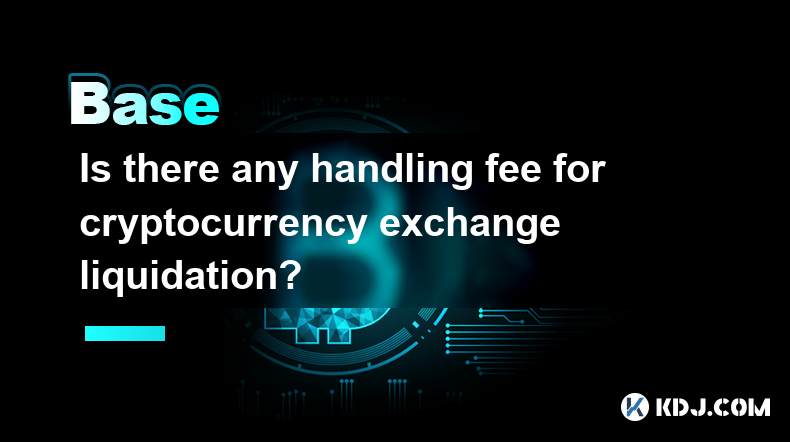
Is there any handling fee for cryptocurrency exchange liquidation?
Apr 10,2025 at 04:29pm
When trading contracts on cryptocurrency exchanges, liquidation is a word that scares investors. A liquidation means that the investor has lost all its principal. So, will the exchange still charge a handling fee when the liquidation is liquidated? This is a concern for many investors. This article will give a detailed answer to this. Important statemen...
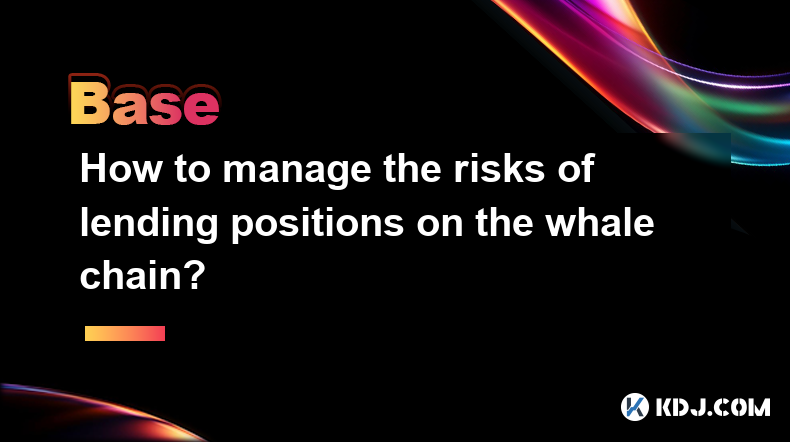
How to manage the risks of lending positions on the whale chain?
Apr 09,2025 at 10:50pm
To manage the risks of lending positions on the whale chain, we need to start from the following aspects: 1. Reasonable control of positions and leverage:Determine the appropriate lending scale and leverage multiple based on your own risk tolerance to avoid excessive leverage. For example, if whales do not have a particularly strong grasp of the market ...
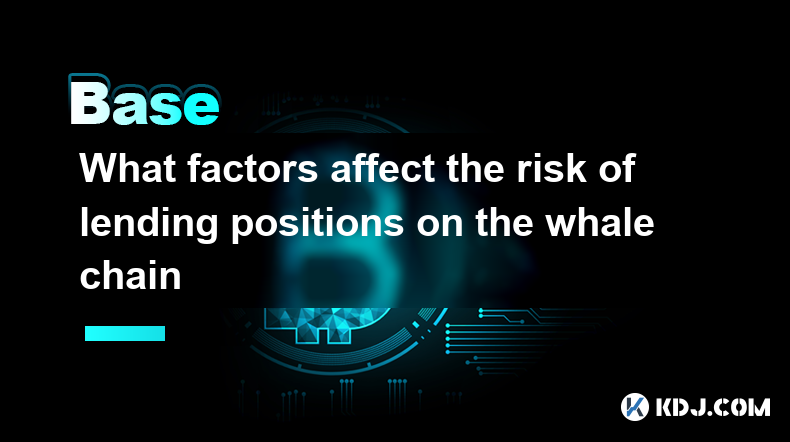
What factors affect the risk of lending positions on the whale chain
Apr 10,2025 at 12:35am
Here are some factors that will affect the risk of lending positions on the whale chain: 1. Market price fluctuations:The decline in collateral prices will cause the collateral value to shrink and may trigger liquidation. For example, a whale borrowed 75.69 million DAI with 60,810 ETH. When the price of ETH falls, its position health will drop sharply a...
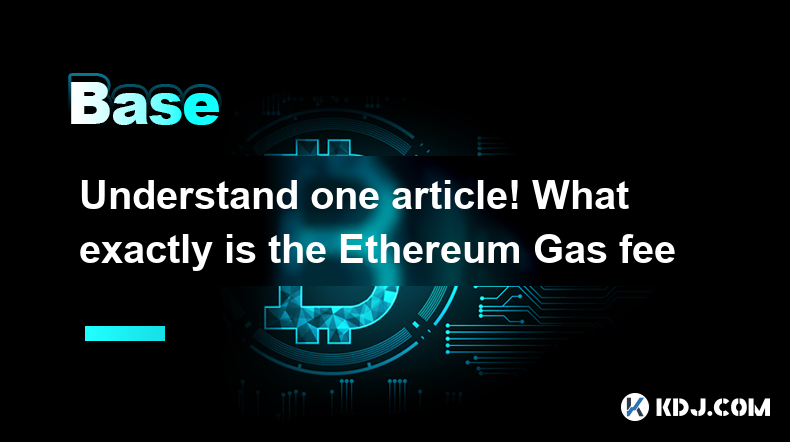
Understand one article! What exactly is the Ethereum Gas fee
Apr 10,2025 at 03:21am
The Ethereum Gas fee refers to the fees paid when trading or executing smart contracts on the Ethereum blockchain, which is used to compensate miners for the computing resources consumed by verifying and packaging exchanges. Here is a detailed introduction to it: Gas concept Gas can be regarded as the “fuel” in the Ethereum network. Ethereum is regarded...
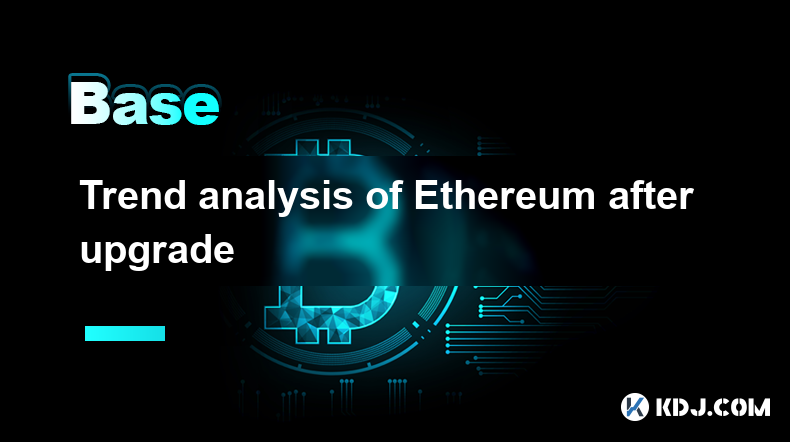
Trend analysis of Ethereum after upgrade
Apr 10,2025 at 04:01am
As a pioneer in blockchain technology, Ethereum has a profound impact on the entire digital asset field every upgrade. Accurately predicting upgraded market trends is crucial for investors and developers. This article will explore in-depth various trends that may appear after the upgrade of Ethereum, helping you grasp the pulse of the market and underst...
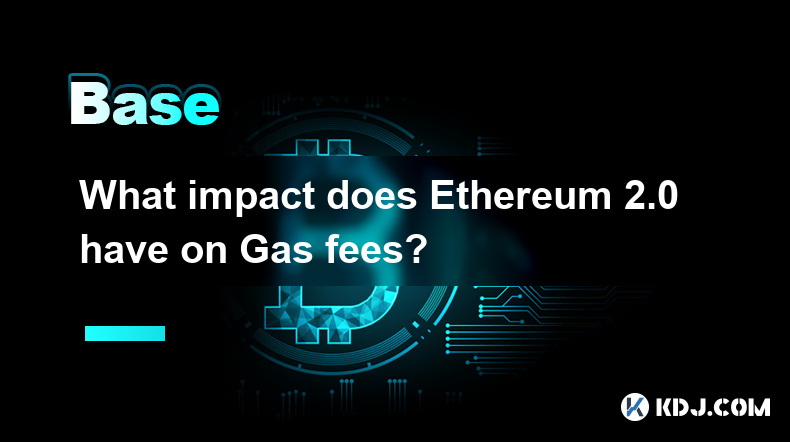
What impact does Ethereum 2.0 have on Gas fees
Apr 09,2025 at 02:43pm
Ethereum 2.0 has had a positive impact on Gas fees in many aspects, mainly reflected in the following aspects: Transformation of consensus mechanism : Ethereum 2.0 shifts from Proof of Work (PoW) to Proof of Stake (PoS). In PoW mode, miners consume a lot of resources in order to obtain block yield rights, so they offset the cost through high handling fe...

Is there any handling fee for cryptocurrency exchange liquidation?
Apr 10,2025 at 04:29pm
When trading contracts on cryptocurrency exchanges, liquidation is a word that scares investors. A liquidation means that the investor has lost all its principal. So, will the exchange still charge a handling fee when the liquidation is liquidated? This is a concern for many investors. This article will give a detailed answer to this. Important statemen...

How to manage the risks of lending positions on the whale chain?
Apr 09,2025 at 10:50pm
To manage the risks of lending positions on the whale chain, we need to start from the following aspects: 1. Reasonable control of positions and leverage:Determine the appropriate lending scale and leverage multiple based on your own risk tolerance to avoid excessive leverage. For example, if whales do not have a particularly strong grasp of the market ...

What factors affect the risk of lending positions on the whale chain
Apr 10,2025 at 12:35am
Here are some factors that will affect the risk of lending positions on the whale chain: 1. Market price fluctuations:The decline in collateral prices will cause the collateral value to shrink and may trigger liquidation. For example, a whale borrowed 75.69 million DAI with 60,810 ETH. When the price of ETH falls, its position health will drop sharply a...

Understand one article! What exactly is the Ethereum Gas fee
Apr 10,2025 at 03:21am
The Ethereum Gas fee refers to the fees paid when trading or executing smart contracts on the Ethereum blockchain, which is used to compensate miners for the computing resources consumed by verifying and packaging exchanges. Here is a detailed introduction to it: Gas concept Gas can be regarded as the “fuel” in the Ethereum network. Ethereum is regarded...

Trend analysis of Ethereum after upgrade
Apr 10,2025 at 04:01am
As a pioneer in blockchain technology, Ethereum has a profound impact on the entire digital asset field every upgrade. Accurately predicting upgraded market trends is crucial for investors and developers. This article will explore in-depth various trends that may appear after the upgrade of Ethereum, helping you grasp the pulse of the market and underst...

What impact does Ethereum 2.0 have on Gas fees
Apr 09,2025 at 02:43pm
Ethereum 2.0 has had a positive impact on Gas fees in many aspects, mainly reflected in the following aspects: Transformation of consensus mechanism : Ethereum 2.0 shifts from Proof of Work (PoW) to Proof of Stake (PoS). In PoW mode, miners consume a lot of resources in order to obtain block yield rights, so they offset the cost through high handling fe...
See all articles





















































































